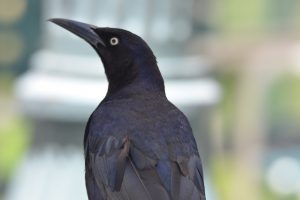Warming Climate Spells Chaos for Seasonal Bird Migrations

Climate change is causing spring to arrive earlier in much of North America, but this advance is not happening uniformly across many bird’s migration routes.


Climate change is causing spring to arrive earlier in much of North America, but this advance is not happening uniformly across many bird’s migration routes.
It has become something of an annual tradition that I produce an advent calendar each year with facts, interesting links and videos. Consider it a little festive treat for your brain :) Here is your 2016 advent calendar – check out the doors that are already open, and come back each day for a new treat!

Great-tailed grackles are very flexible, quickly learning to associate new cues with food, but new research suggests this doesn’t help them innovate to solve new problems.
What do those cute little baby sea turtles do after their epic sprint to the water? Until very recently, we simply didn’t know. Nobody had been able to study the movement of juvenile sea turtles in natural conditions – they were simply too small and too difficult to track. But a new study reveals for the first time just what the young turtles have been up to in the Pacific ocean – and it shows that they are just as determined and tenacious as they were on land, fighting strong currents to reach their preferred feeding grounds.
Continue reading
A group of bottlenose dolphins in Shark Bay, Western Australia, use a clever trick to access prey on the sea floor – they cover their beaks with marine sponges to protect themselves from sharp rocks as they search for food. 30 years after the behaviour was first reported, scientists have now found that individuals improve with practice, peaking just when it matters most.
Continue reading
If you ever owned a pet stick insect as a child, you might have noticed them swaying back and forth at the end of a twig, but until recently, nobody knew what this strange behaviour was for.
Continue reading
For male elephant seals, the fight to secure a mate can be vicious, even deadly. So they try everything they can to avoid it. This is a pattern biologists see again and again – across the animal kingdom, males have evolved to use signals to assess each other’s prowess and avert costly physical confrontations. In most cases, these signals are honest – they accurately convey an individual’s size, strength or dominance. But new research shows this is not the case for Elephant seals, which have evolved a more sophisticated system.
New research published last week describes how black widow spiders destroy their mate’s nests to deter rival males.
Nice guys finish last? Not for the hermit crab – shy males produce more sperm and are more successful with the ladies.
While we accept the individual differences in behaviour between humans without question, terming it ‘personality’, the idea personality in animals has been met with great scepticism. However, evidence for consistent behavioural differences between individuals, known as personality or behavioural syndromes, is now widespread, the question remaining is why? What is the benefit of personality? Some scientists suggest that different personalities represent different life strategies relating to risk taking and investing in the future, others suggest that personalities exist because environmental conditions are variable and different strategies fair better under different conditions.
Continue reading